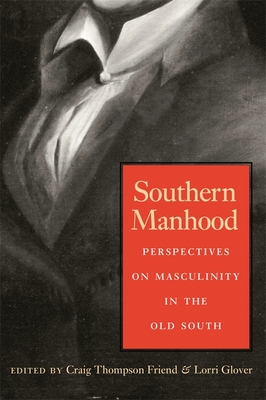

 University of Georgia Press
University of Georgia Press
Southern Manhood: Perspectives on Masculinity in the Old South


Key Metrics
- Edward E Baptist
- University of Georgia Press
- Paperback
- 9780820326160
- 8.94 X 6 X 0.58 inches
- 0.77 pounds
- Social Science > Men's Studies
- English
 Secure Transaction
Secure TransactionBook Description
Spanning the era from the American Revolution to the Civil War, these nine pathbreaking original essays explore the unexpected, competing, or contradictory ways in which southerners made sense of manhood. Employing a rich variety of methodologies, the contributors look at southern masculinity within African American, white, and Native American communities; on the frontier and in towns; and across boundaries of class and age.
Until now, the emerging subdiscipline of southern masculinity studies has been informed mainly by conclusions drawn from research on how the planter class engaged issues of honor, mastery, and patriarchy. But what about men who didn't own slaves or were themselves enslaved? These essays illuminate the mechanisms through which such men negotiated with overarching conceptions of masculine power. Here the reader encounters Choctaw elites struggling to maintain manly status in the market economy, black and white artisans forging rival communities and competing against the gentry for social recognition, slave men on the southern frontier balancing community expectations against owner domination, and men in a variety of military settings acting out community expectations to secure manly status.
As Southern Manhood brings definition to an emerging subdiscipline of southern history, it also pushes the broader field in new directions. All of the essayists take up large themes in antebellum history, including southern womanhood, the advent of consumer culture and market relations, and the emergence of sectional conflict.
Author Bio
I focus on the history of the 19th-century United States, and in particular on the history of the enslavement of African Americans in the South. The expansion of slavery in the United States between the writing of the Constitution in 1787 and the outbreak of the Civil War in 1861 had enormous consequences for all Americans.
Indeed, the expansion shaped many elements of the modern world that we now live in, both inside and outside the borders of the United States. I am writing a book about that process: the experience of the slave trades and forced migrations that drove expansion, the systems of labor that emerged, the economic and political and cultural consequences for women and men and children.
Source: Cornell University - The Department of History
Community reviews
Write a ReviewNo Community reviews






